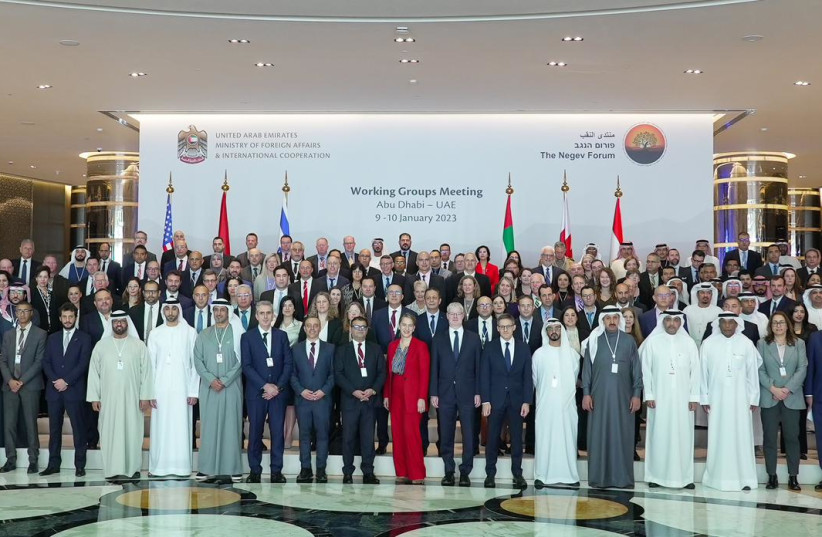The N7 Initiative is pushing for a regional free agreement between Israel and its Arab neighbors, starting with a trilateral one with the United Arab Emirates and Bahrain.
“Israel of course has entered into multiple bilateral trade agreements with countries in the region,” said William F. Wechsler. He is the senior director of the N7 project, which is run by the Atlantic Council and the Jeffrey M. Talpins Foundation.
There are, however, no regional trade zones that include Israel, Wechsler explained, adding that the issue is not just regional.
“Israel does not have any multilateral free trade agreements at all and that is actually quite unusual. Most countries are part of some kind of multilateral trade agreement,” he said.
So this is “relatively novel” for Israel, he said.

“Israel and the UAE have a bilateral free trade agreement and Israeli and Bahrain are finishing negotiations on a free trade agreement,” he said, adding that there is also a more long-standing one with Jordan.
Four nations are in the Abraham Accords
There are four nations that agreed to normalized ties with Israel under the 2020 Abraham Accords: the UAE, Bahrain, Morocco, and Sudan. These come on top of the 1979 peace deal with Egypt and the 1994 one with Jordan.
The N7 project, which seeks to strengthen Israel’s ties with those six Arab countries, would like to see a regional free trade zone comprised of those countries. It would run in conjunction to the existing Greater Arab Free Trade Area, which includes 18 Middle Eastern countries including those with normalized ties with Israel as well as those that do not such as Saudi Arabia. The Palestinian Authority is also part of the group.
Wechsler said that one first step could be a trilateral free trade agreement between Israel, the UAE, and Bahrain.
To help push the idea forward N7 held a conference in Bahrain this week to focus on ways to strengthen Israel’s commercial ties to the region. The event had the support of the Kingdom of Bahrain and involved representatives from the United States, the UAE, Israel, Morocco, Egypt, and Sudan.
Such agreements do not just bolster trade, but also help foster a group identity that strengthens the relationships, he said.
The N7 Initiative hopes to publish a report in October that will lay out a plan to advance regional free trade with Israel.
Talpins Foundation president Oren Eisner said, “I see every reason why a future Middle East will be one of stability and prosperity and one where shared cultures will far outweigh any past differences and conflicts, much like what happened in Europe. Trade is a vital part in bringing about this vision."
